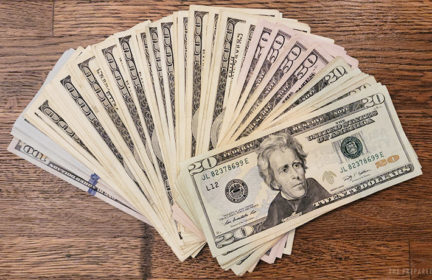How to budget, save money & establish financial health
I see great forum discussions emphasizing that physical health and financial health are two of the key foundations to a good prep. Practicing survival skills and acquiring gadgets are really fun, but I’d argue that they’re the grill lines on the steak.
John Ramey gives solid notes on how to create a simple budget in the article, “Why personal finance is critical for preppers and tips on money management.” I am such an enormous nerd about that topic, though! To me, budgeting is inherently prepping — they’re one in the same. But how? And where can you get started?
So, here’s deep dive about:
- how do you actually make a budget that reflects your individual values, needs, and priorities?
- And once you’ve drafted that budget, how do you stick to it?
I’ve found success (at last, after lots of failures and self-doubt) with an app called You Need A Budget, or YNAB (“why-nab”) for short.
I like YNAB because it’s a values-neutral system. Want to spend $10 a day on Starbucks, get a dog, pay off your debt, and plan to live off-the-grid on a homestead in 5 years? Yeah, cool! You can do that. Or anything else that’s important to you, because you’re the boss of your money, not a set of arbitrary rules.
The system helps you be the boss of your money by helping you to discern your financial priorities and achieve clarity about what’s most important for your money to do next before more money arrives. You do this by writing down your priorities, then choosing the most important ones to fund, and assigning your money jobs (e.g., “pay for groceries this week,” “sit there and look pretty in my car emergency fund”) until all your money has been assigned jobs.
There are four rules in YNAB’s system to help you make that happen:
- Give every dollar a job. Whenever money arrives, you prioritize what jobs need to happen first before more money arrives. Do you need to pay the electric bill, buy groceries this week, or make sure to have some money set aside for beers with your friends? YNAB helps you discern that choice proactively, then helps you follow the plan that you create.
- Embrace your true expenses. True expenses are reoccurring, less frequent expenses. Sometimes, they’re things that we know are coming up on a particular future date, like buying Christmas presents or paying for the kids’ summer camp. Other times, you don’t know when they’ll strike, but you can safely assume that someday, you will need money to pay for car repairs. Rule 2 helps you identify what your true expenses are, plan for them, and start setting money aside for them before you need to have it available to spend.
- Roll with the punches. Did you dine out one too many times? Or maybe you actually need to replace your cell phone after it went for a dip in the lake, but you don’t have money set aside for that? No problem; that’s normal, not a reason to feel guilty or quit budgeting. Circumstances change and your plans change with them. Your budget is no different. If you overspend in one category, Rule 3 tells you to cover that spending with money from another category and keep on trucking.
- Age your money. Slowly begin setting aside money to spend on next month’s expenses. In time, you’ll reach a point at which you’re spending money today that entered your bank account for the first time last month. (You’ll be able to cover May’s mortgage with dollars from April.) The app helps you to be purposeful in your spending and consistently spend less than you earn. This allows you to break the paycheck-to-paycheck cycle, establish emergency savings, and build a more secure foundation for your prep.
Here are a few free places to get started:
- Get Started Video
- Get Started Guide
- You Need A Budget book by Jesse Mecham — available free on Kindle through my public library, and maybe through yours?
- Live, Weekly Workshops
- YNAB Reddit
- YNAB Podcasts on Spotify, Apple Podcasts, etc.
- Free 34-Day Trial — you do not have to enter payment info when you create your account to get started
I’m not a YNAB employee, and this isn’t a sponsored post. I really am just a huge fan of this system. I see how much it helps others, and it’s helped me tons. It’s okay if it’s not for you; no budgeting tool is a one-size-fits-all solution. I share this in case someone else reads this who, like me, feels totally underwater and unable to start.
Budgeting, like physical fitness, sounds simple on the surface. When I started to get into it, I learned that it’s actually deeply personal. It often requires education, access to tools, and peer support for people to be successful at it. It’s hard to establish the habit of it, and easy to fall off the wagon. I hope that this post helps others for whom budgeting is a big challenge in your prep.
Drop a note in the comments if you’ve got questions, or if you’ve used other tools that work well for you. I’d love to read more about anything that helps people succeed in the threads below, even if it’s not related to YNAB.
-
Comments (8)
-

